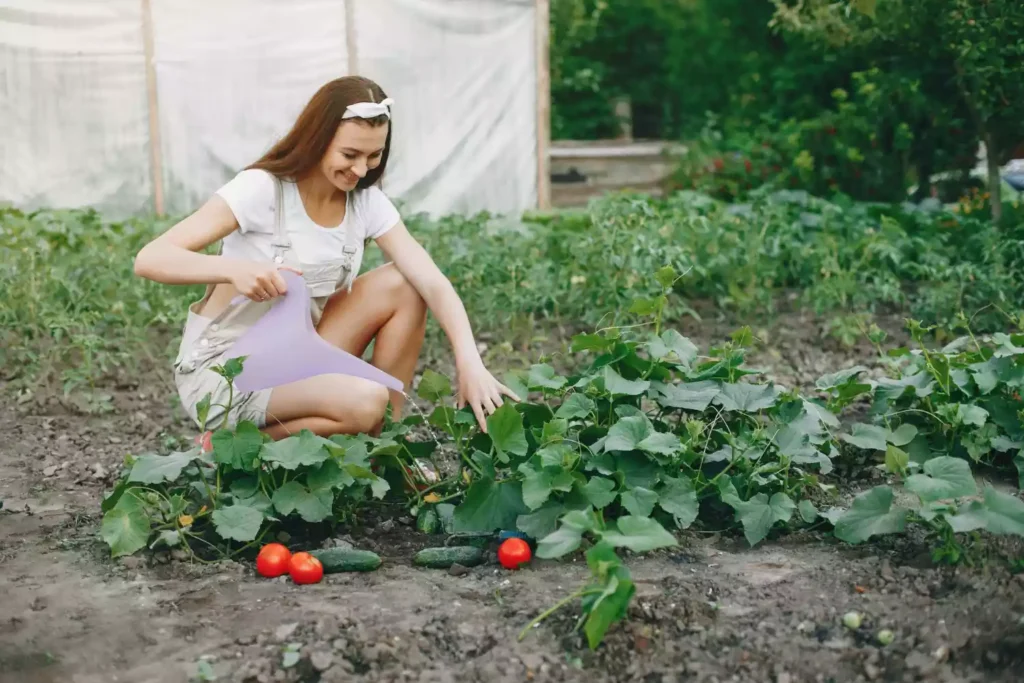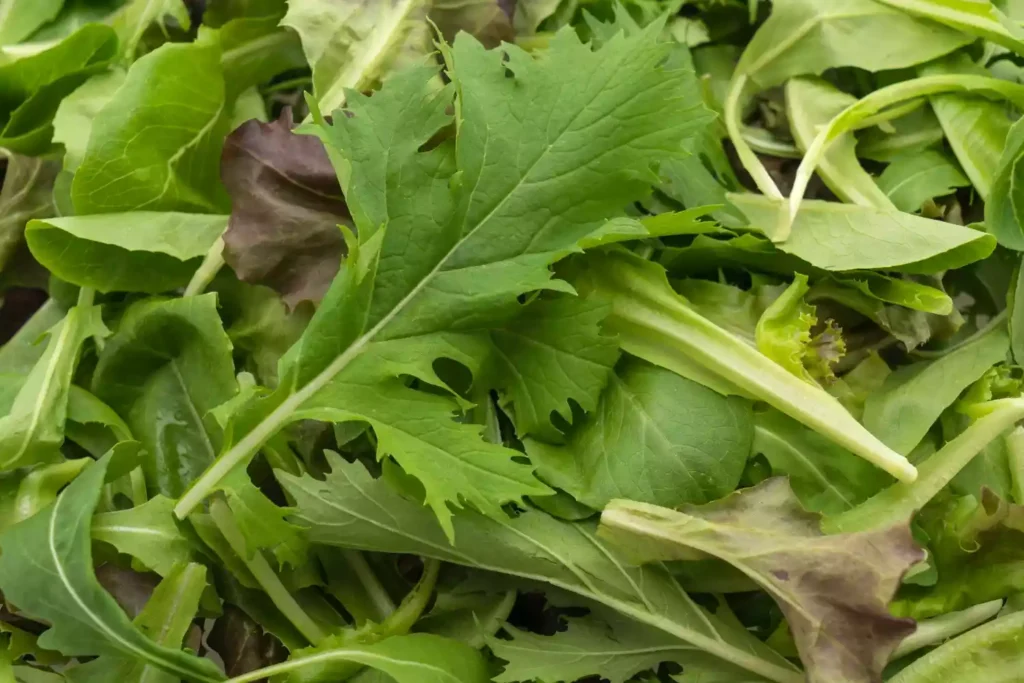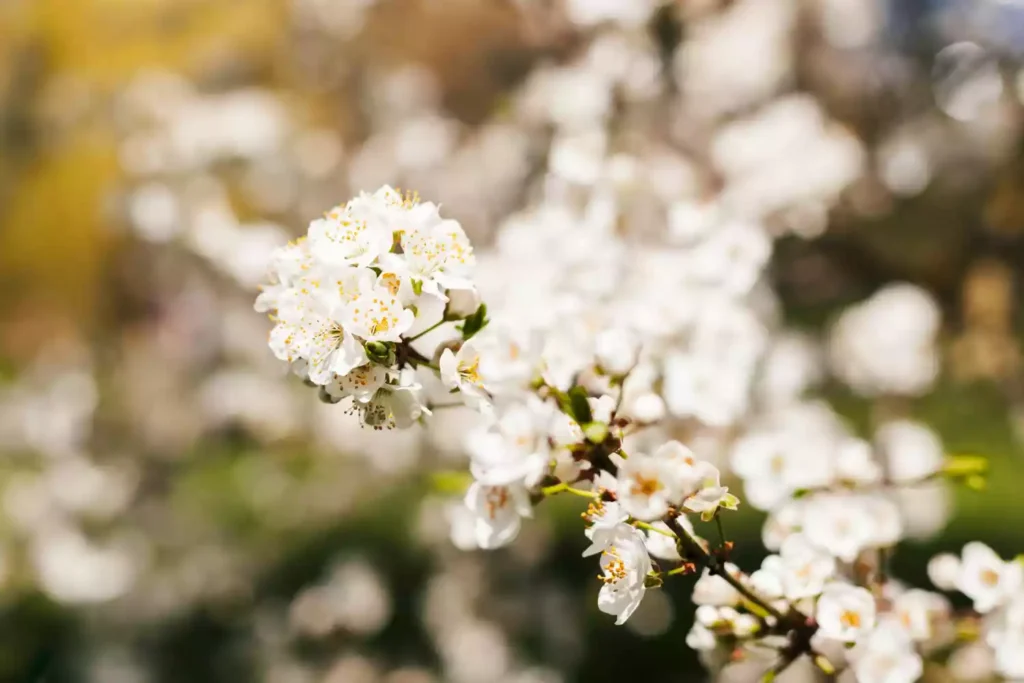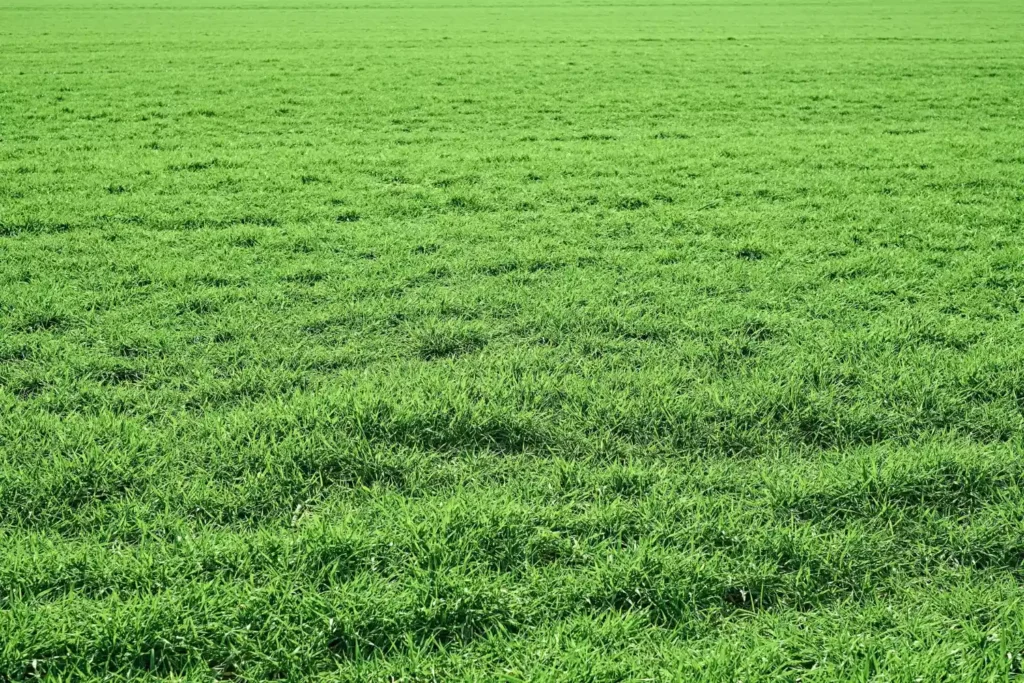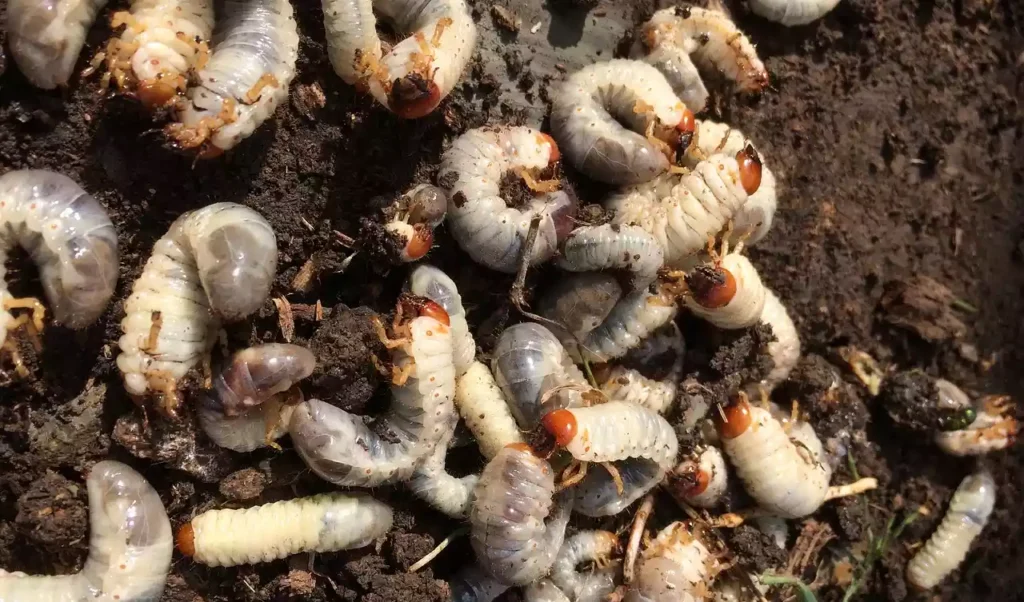Growing up, my father always emphasized the importance of using natural methods to improve our garden’s soil quality. While we used traditional compost, he also introduced me to the world of worm castings. At first, I was hesitant to try it out, but after seeing the results, I became a believer in the power of worm castings as a fertilizer.
Worm castings, also known as vermicompost, offer numerous benefits to gardeners looking to improve their soil quality. Not only do they add beneficial bacteria and fungi to the soil, but they also help plants fight off pests and diseases.
However, like any gardening technique, there are also some disadvantages to consider. In this article, I’ll explore the advantages and disadvantages of using worm castings and provide tips on how to use them effectively in your garden.
Why are Worm Castings beneficial?
Get ready to supercharge your plants with the amazing benefits of these nutrient-rich soil amendments! Worm castings are packed with beneficial bacteria, enzymes, and microorganisms that improve soil structure and condition.
They act as a natural fertilizer, enriching the soil with nitrogen, phosphorus, calcium, potassium, and magnesium. These nutrients are essential for plant growth and development, providing the building blocks for robust leaves, stems, and roots.
Worm castings also act as an insect repellent, controlling populations of spider mites, whiteflies, and aphids. They have disease-preventing properties that can suppress some soil-borne diseases, preserving soil health.
Using worm castings can improve plant growth, helping plants grow stronger roots for indoor and outdoor plants. They make fertile soils by turning organic waste into beneficial bacteria and enzymes for healthier plants.
Overall, worm castings are a natural, sustainable, and valuable addition to any garden, offering a plethora of benefits for both the plants and the earth.
Advantages of Worm Castings
As a seasoned gardener, I can attest to the numerous advantages that worm castings bring to the table. Not only do they enrich soil structure and make it more fertile, but they also act as an insect repellent and contain disease-preventing properties that keep soil health in check.
Plus, using worm castings as a compost starter can improve the microbial activity in your heap, which in turn enhances plant growth and helps them develop stronger roots.
In short, if you’re looking to create healthy, thriving plants, incorporating worm castings into your soil is definitely the way to go.
Worm Castings Enrich Soil Structure
Enriching soil structure has never been easier with the natural fertilizer that helps plants grow stronger roots and repel insects. Worm castings are a great option for gardeners looking to improve the health and vitality of their plants.
Here are four reasons why worm castings are an excellent addition to your soil:
- Worm castings contain humic acid, which helps improve soil structure and water retention.
- They also contain chitinase, an enzyme that breaks down chitin, a component of insect exoskeletons, making plants less attractive to pests.
- Worm castings are rich in beneficial microorganisms that improve soil health and suppress diseases.
- They are a slow-release fertilizer, providing nutrients to plants over several months, making them a sustainable option for your garden.
Incorporating worm castings into your soil can help improve the overall health and productivity of your plants. With their ability to enrich soil structure, repel insects, and provide essential nutrients, worm castings are an excellent choice for any gardener looking to grow healthier and more vibrant plants.
Worm Castings Act as an Insect Repellent
You’ll love how worm castings naturally repel pesky insects, making them a great addition to any garden looking for a natural defense against pests. These castings contain chitinase, an enzyme that breaks down chitin, a component found in the exoskeletons of insects.
When insects come into contact with worm castings, the chitinase breaks down their exoskeleton, causing them to die or move on to another area. Worm castings are particularly effective against spider mites, whiteflies, and aphids.
These pests can wreak havoc on a garden, causing damage to plants and reducing yields. By incorporating worm castings into your soil, you can reduce the populations of these insects and maintain a healthy, pest-free garden.
Additionally, using worm castings as a natural insect repellent is an eco-friendly alternative to chemical pesticides, promoting a safer and more sustainable gardening practice.
Use It as a Compost Starter
If you want to give your compost heap a boost of microbial activity, sprinkle in some worm castings like fairy dust to create a magical environment for decomposition.
Worm castings are rich in beneficial bacteria, enzymes, and microorganisms that can help speed up the composting process. They also contain trace amounts of nitrogen, phosphorus, and other nutrients that are essential for plant growth.
To use worm castings as a compost starter, simply mix them into your compost pile or bin. You can also add them to your kitchen scraps or yard waste before adding them to the compost pile. This will ensure that the worm castings are evenly distributed throughout the compost pile, providing a steady supply of nutrients and microorganisms for your plants.
Using worm castings as a compost starter is a sustainable and natural way to improve soil health and plant growth, while reducing waste and supporting the environment.
Worm Castings Improve Plant Growth
Using worm castings in your garden is like giving your plants a superfood boost. They improve plant growth and yield by providing essential nutrients and beneficial microorganisms.
Worm castings contain nitrogen, phosphorus, potassium, calcium, and magnesium, which are all important nutrients for plant growth. Moreover, they are coated in beneficial bacteria, enzymes, and microbes that help break down organic matter in the soil and make nutrients more readily available to plants.
Not only do worm castings provide essential nutrients, but they also improve soil structure and aeration. This allows plants to develop stronger and healthier root systems. This, in turn, leads to better water and nutrient uptake, which translates to improved plant growth and yield.
Additionally, worm castings act as an insect repellent, controlling populations of spider mites, whiteflies, and aphids. They also have disease-preventing properties that can suppress some soil-borne diseases to preserve soil health.
By incorporating worm castings into your garden, you can ensure that your plants are getting all the essential nutrients they need to thrive. You can also ensure that your soil is healthy and fertile.
Help Plants Grow Stronger Roots
Enhancing the strength of plant roots is one of the many benefits of incorporating worm castings into your garden. The nutrients and microorganisms found in worm castings work together to create an environment that promotes root development.
When plants have strong roots, they are better able to absorb the nutrients and water they need to thrive, resulting in healthier and more productive plants. Not only do worm castings provide the necessary nutrients for root growth, but they also improve the soil structure and aeration, allowing roots to spread and grow more easily.
By adding worm castings to your garden, you’re giving your plants a solid foundation for optimal growth and productivity. So, if you want to help your plants establish strong roots and produce bountiful harvests, consider incorporating worm castings into your gardening routine.
Worm Castings Make Fertile Soils
Incorporating worm castings into your garden routine can create fertile soils that promote optimal plant growth and productivity. Worm castings are a natural fertilizer that’s rich in nutrients like nitrogen, phosphorus, and potassium, as well as trace amounts of other essential micronutrients.
When added to soil, worm castings help create a balanced environment that encourages healthy root growth. This is essential for plant development and productivity. In addition to providing essential nutrients, worm castings also improve soil structure and texture, which can help retain moisture and improve drainage.
The beneficial bacteria and fungi present in worm castings help break down organic matter, making it more available to plants. This helps create a nutrient-rich environment that supports healthy plant growth and improves overall soil health. By incorporating worm castings into your garden routine, you can create a sustainable and natural source of fertility that’ll benefit your plants, your soil, and the environment.
Disease-Preventing Properties
You can protect your garden from soil-borne diseases by adding worm castings. They have disease-preventing properties that support soil health and promote healthy plant growth. Here are five ways that worm castings can help prevent diseases in your garden:
- Worm castings contain beneficial microbes that can suppress soil-borne diseases, such as Fusarium and Phytophthora.
- The microorganisms in worm castings help to break down organic matter in the soil, which can reduce the risk of disease-causing pathogens.
- The nutrients in worm castings help to strengthen plant immune systems, making them less susceptible to diseases.
- Worm castings can help to balance soil pH levels, which can help to prevent certain plant diseases.
- The beneficial bacteria and fungi in worm castings can improve soil structure and increase water-holding capacity, which can reduce the risk of soil-borne diseases.
By using worm castings in your garden, you can help prevent soil-borne diseases and promote healthy plant growth. With their disease-preventing properties and other benefits, worm castings are an excellent addition to any garden.
Disadvantages of Worm Castings
I want to discuss the disadvantages of using worm castings in gardening. Firstly, it’s important to note that there will always be a limited quantity of worm castings, as worms reproduce slowly.
Secondly, temperature changes can be dangerous for the survival of worms, making vermicomposting a more challenging process.
Additionally, misuse of the leachate can be harmful as it can contain harmful bacteria, and harvesting worm castings can be laborious and challenging without harming the worms.
It’s important to keep these factors in mind when considering using worm castings as a soil amendment.
There will be always a limited quantity of worm castings
Like a precious gemstone, worm castings are a limited resource that must be used strategically to maximize their benefits for plant growth and soil health. As much as we’d like to cover our entire garden with worm castings, the reality is that there will never be enough to go around.
However, this shouldn’t discourage us from using them altogether. Instead, we should prioritize the areas where worm castings will make the most significant impact.
To use worm castings strategically, consider the following tips:
- Use worm castings as a top dressing for container plants, seedlings, and plants that require frequent feeding.
- Mix worm castings with other soil amendments, such as compost, to stretch their use over a larger area.
- Apply worm castings to areas where they will have the most significant impact, such as vegetable and fruit plants or areas with poor soil quality.
By using worm castings strategically, we can make the most of this limited resource while still reaping the benefits of healthier, more productive plants.
Temperature Changes Are Dangerous
As mentioned earlier, there will always be a limited quantity of worm castings available. However, it’s important to note that worm systems need to be protected from weather extremes to ensure the survival of worms and maintain a consistent production of castings. Temperature changes, in particular, can be dangerous for the worms and can significantly affect the quality and quantity of castings produced.
To better understand the impact of temperature on worm castings production, let’s take a look at the table below:
| Temperature | Impact on Worms | Impact on Castings |
|---|---|---|
| Below 50°F | Worms become inactive and may die | Production slows down or stops |
| 50-60°F | Worms slow down and become less active | Production rate decreases |
| 60-70°F | Optimal temperature range for worms | Production is consistent |
| 70-80°F | Worms become more active but may also dry out | Production rate may increase but quality may decrease |
| Above 80°F | Worms become stressed and may die | Production slows down or stops |
As you can see, temperature plays a crucial role in the success of vermicomposting. It’s important to maintain a consistent temperature range of 60-70°F to ensure the health and productivity of the worms. Any extreme changes in temperature can be detrimental to both the worms and the quality of worm castings produced. Therefore, it’s important to monitor and regulate the temperature of your worm bin to ensure optimal conditions for both the worms and the production of high-quality worm castings.
Misuse of the Leachate
Be careful not to misuse the leachate from your worm bin, as it may contain harmful bacteria and could harm your plants. Leachate is the liquid that drains from the worm bin and contains excess moisture, worm poop, and other organic matter.
While it can be a great liquid fertilizer for your plants, it must be used with caution. Here are a few guidelines for using leachate safely and effectively:
- Dilute the leachate with water before use, as it can be too strong for some plants.
- Use the leachate within 24 hours of collection, as it can start to develop harmful bacteria if left sitting for too long.
- Do not use leachate if you notice a foul odor, as this could be a sign of harmful bacteria or other issues with the worm bin.
It’s Difficult To Harvest Worm Castings
Harvesting worm castings can be a challenging task for you, but with proper care and techniques, you can ensure a bountiful yield of nutrient-rich soil amendment for your plants. The biggest challenge in harvesting worm castings is separating them from the worms without harming them. One solution is to use a multi-layered system where the worms are added to the top layer of the bin and fed fresh organic matter while the castings are harvested from the bottom layer.
Another technique is to use a screen or mesh to sift the castings from the worms. However, this method can be time-consuming and laborious. A helpful tip is to freeze the worms for a few minutes before sifting to make them easier to separate from the castings. Overall, although harvesting worm castings may require some care and effort, the benefits of using this nutrient-rich soil amendment for your plants are definitely worth it.
| Advantages | Disadvantages | Tips & Techniques |
|---|---|---|
| Improves soil structure and condition | Takes several months to produce | Use a multi-layered system for easier harvesting |
| Acts as an insect repellent | Can be challenging to harvest without harming worms | Freeze worms before sifting |
| Contains beneficial microorganisms | Might contain pathogens and weed seeds | Use a screen or mesh to sift castings |
| Helps suppress soil-borne diseases | More expensive than regular compost or homemade vermicompost | Be patient and don’t rush the process |
Worm Castings vs Compost
When it comes to using worm castings versus compost, there are a few key differences to consider. Regular compost is usually the better choice for digging over a large area like a vegetable garden. However, worm castings can be highly effective for making potting mix and liquid fertilizer.
In addition, worm castings can improve soil structure and provide beneficial nutrients for plants as a soil amendment. As someone who has experience with both composting and using worm castings, I highly recommend considering these factors when deciding which option to use in your gardening endeavors.
Digging over a large area such as a vegetable garden.
If you’re looking for an effortless way to enrich soil and improve the condition of your vegetable garden, consider using regular compost instead of laboriously digging over a large area. While worm castings are a fantastic soil amendment, they can be limited and costly for large garden spaces.
Regular compost, on the other hand, can be made from a variety of organic materials and is easy to spread across a large area. Using regular compost has many benefits for your vegetable garden, such as improving soil structure, increasing nutrient availability, and promoting healthy plant growth.
Additionally, regular compost helps retain moisture in the soil, which can be especially beneficial during hot summer months. So, if you’re looking for a way to improve your vegetable garden without all the hard work, consider using regular compost as a cost-effective and efficient solution.
Making potting mix
Creating a high-quality potting mix for your indoor and outdoor plants is essential for their growth and health, and using a blend of compost, peat moss or coco coir, and perlite, along with a little worm casting, can provide the perfect balance of nutrients and soil structure. Worm castings are a great addition to any potting mix, providing beneficial bacteria and enzymes that promote healthy plant growth. However, because worm castings have a slightly alkaline pH, it’s important to balance them with acidic materials such as peat moss or coco coir.
To give you an idea of how much of each component to use, refer to the table below. This is a rough guide, and you can adjust the ratios to suit your specific needs. Keep in mind that worm castings should make up no more than 10% of the total mix, as too much can be detrimental to plant growth. With a little bit of experimentation, you’ll be able to find the perfect balance of ingredients for your plants, ensuring they receive the nutrients and structure they need to thrive.
| Component | Ratio |
|---|---|
| Compost | 40% |
| Peat Moss or Coco Coir | 30% |
| Perlite | 20% |
| Worm Castings | 10% |
Making liquid fertilizer
Let’s learn how to make a nutrient-rich liquid fertilizer that’ll give your plants a boost of growth and health. Using worm castings, you can easily create a liquid form of this amazing natural fertilizer that’s perfect for houseplants and vegetables.
Here are some tips for making your own worm casting tea:
- Fill a container with water and add a handful of worm castings per gallon of water.
- Let the mixture steep for a few days, stirring occasionally.
- Strain the mixture through a cheesecloth or fine mesh sieve to remove any solids.
- Dilute the tea with water to a ratio of 1:10 before using as a fertilizer.
Not only is worm casting tea a great way to provide your plants with the nutrients they need, but it also helps to improve soil structure and moisture retention. Plus, using natural fertilizers like worm castings can help produce healthier and more flavorful crops.
Give it a try and see the difference it can make in your garden!
As a soil amendment
So you think your soil needs a little boost, eh? Well, lucky for you, there’s a secret weapon in the gardening world that can take your soil from mediocre to magnificent – worm castings.
As a soil amendment, worm castings are an excellent choice because they improve soil structure, promote moisture retention, and increase aeration. They also provide a natural source of nutrients and beneficial microbes that can help your plants grow stronger and healthier.
One of the best things about worm castings is that they’re incredibly versatile. They can be used in a variety of ways, including as a top dressing for your garden beds, mixed into your potting soil, or added to your compost pile to speed up the decomposition process.
And because they’re 100% organic matter, you don’t have to worry about any harmful chemicals or synthetic additives. So if you want to give your plants the best chance at success, consider adding worm castings to your soil. Your plants (and your taste buds) will thank you!
What Do Worm Castings Do For The Soil?
If you want to give your soil a boost, using worm castings can help. They improve soil structure and make your plants grow stronger roots. Worm castings contain a unique combination of micronutrients and microorganisms that work together to create a healthy and fertile soil.
The beneficial bacteria and enzymes in worm castings help break down organic matter and release nutrients essential for plant growth. They also improve moisture retention, aeration, and soil structure, which can help plants grow better.
Worm castings can act as a natural insect repellent and suppress some soil-borne diseases to preserve soil health. By using them as a soil amendment, you can improve the overall health and vitality of your plants. This leads to bigger yields and healthier produce.
Conclusion
Overall, I highly recommend using worm castings as a fertilizer in your garden. The benefits of adding these nutrient-rich pellets to your soil far outweigh the drawbacks, and they can help give your plants the boost they need to thrive.
One interesting statistic to note is that worm castings can contain up to 10 times more nutrients than regular soil. This means that your plants will have access to more of the essential vitamins and minerals they need to grow strong and healthy.
Plus, the beneficial bacteria and fungi found in worm castings can help improve soil structure and fight off harmful pests and diseases. In my experience, using worm castings has made a noticeable difference in the health and vitality of my plants.
While they may be a bit more expensive than regular compost, the benefits are well worth the investment. Just be sure to harvest them carefully to avoid harming your hardworking worms!

